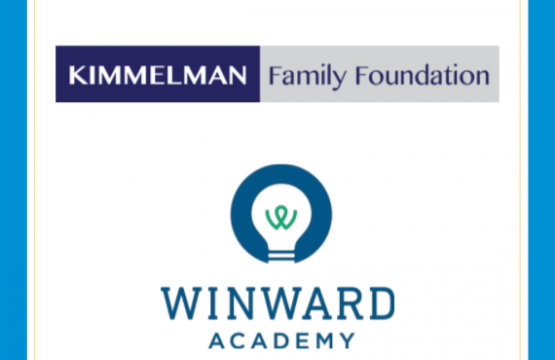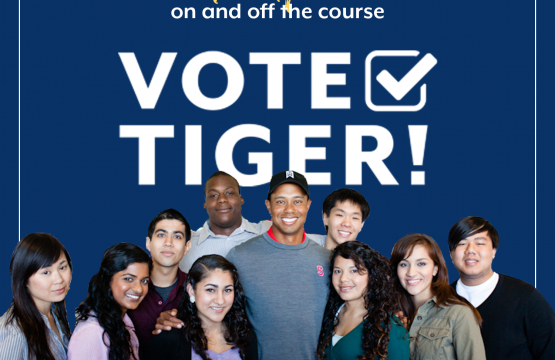Scholar Voices: Perspectives of fear from Los Angeles to Boston
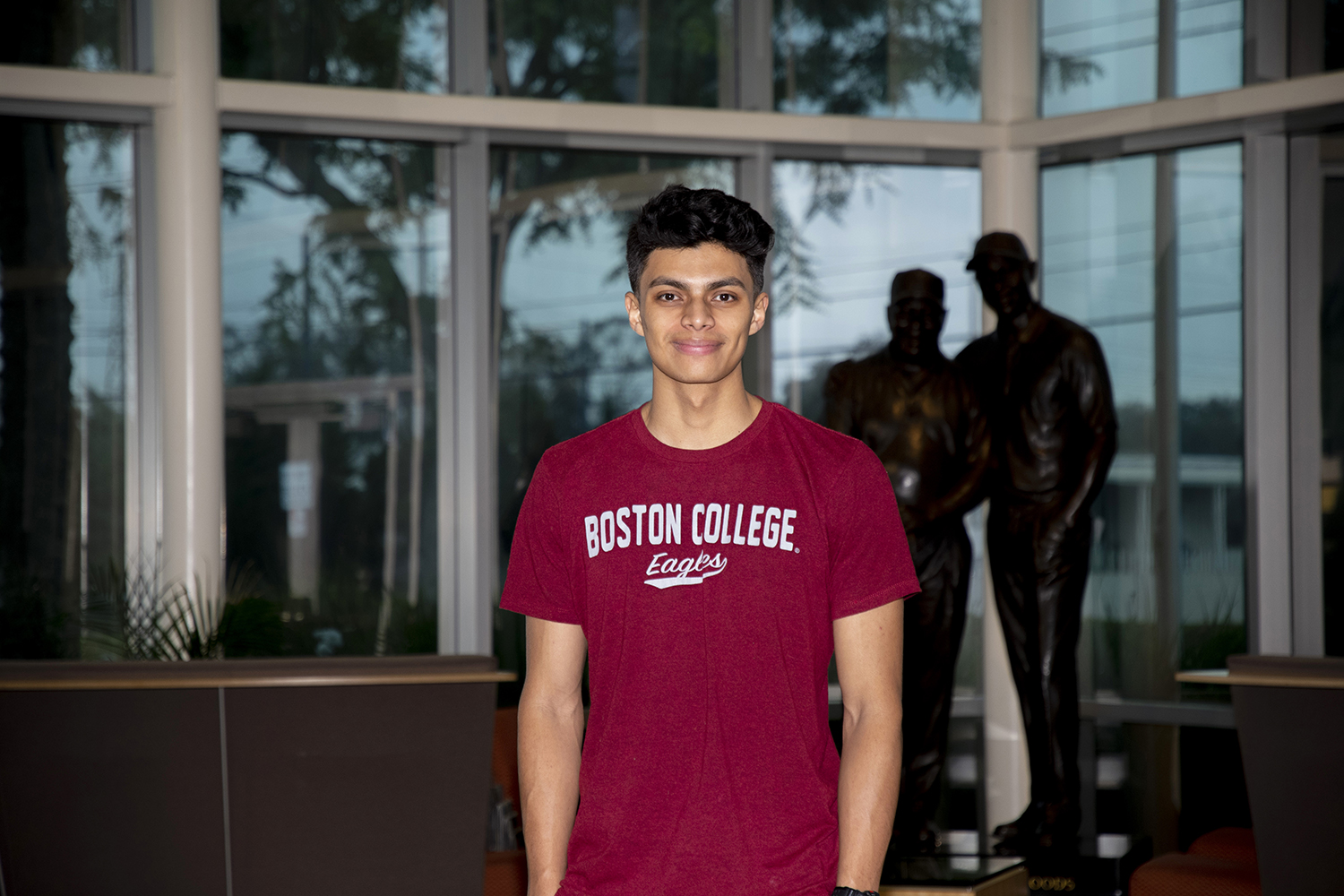
It was a weekday in mid-November 2015. I was released from cheerleading practice around 6 p.m. It was dark out, pitch black already, due to daylight savings. I didn’t go straight home that evening; I had a habit of working out after practice. The gym was up the street from my high school, so I began walking up 54th street about to hit the intersection on Crenshaw when I was approached by a woman. She was terrified and said “Hey! Where are you going?”
My initial instinct was to ignore her because where I’m from you never tell anyone where you’re going, especially at night. She yelled, “Don’t cross the street! You see that man right there, he just got shot!” I looked up about 15 feet in front of me and saw a young man on the ground, dead with fresh bullet wounds.
I didn’t know what to do, I panicked and ran back home as fast as I could. I never forgot the look on the young man’s face or the clothes he was wearing. He was wearing black shoes, black pants and a black hoodie. When I made it home, I looked at myself in the mirror and noticed I was dressed just like him. Till this day I wonder if I had arrived seconds earlier, would I be here today?
After the shooting, I told myself that I would work tirelessly in order to get into a good university and earn the privilege of not having to constantly look over my shoulder. Luckily, I did achieve that goal but for some reason, the tables turned on me.
I was accepted into Boston College on one condition; I would have to complete their summer transition program. I agreed and made my way to Boston during the summer of 2018. During the first week of the program, I experienced an incident that I have still not been able to shake, over a year later.
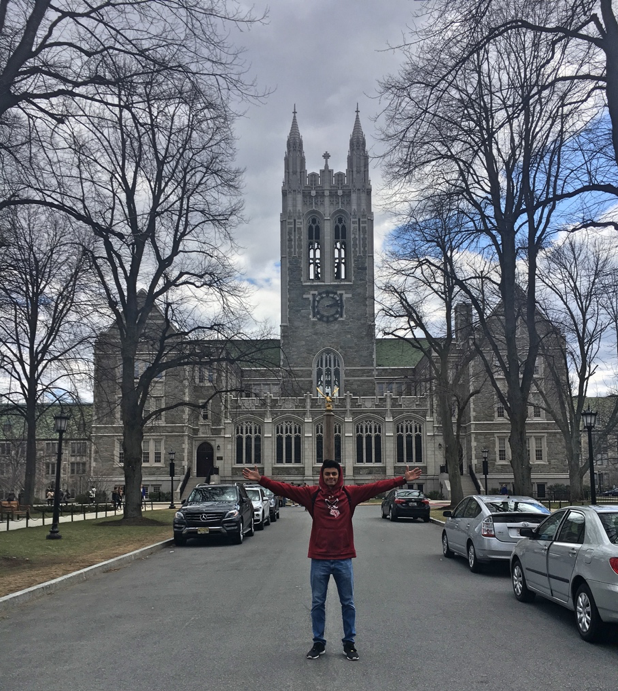
I remember walking back to the dorms with my friends and noticed an UberEATS driver trying to deliver food on the wrong side of the building. My friends and I were attempting to help him and said “Excuse me sir, you’re on the wrong side of the building.”
In a split second the man looked at us and ran toward his car as fast as possible. He seemed terrified. He reversed his car, almost hitting one of my friends and raced away. I looked around, trying to figure out why he was scared and couldn’t find a reason. Then it hit me. It was the color of our skin. We were a group of Hispanics and African-Americans wearing our hoodies at night because it was cold. That’s why he was scared.
That’s the moment I noticed that I live in two very different worlds. One in South Central Los Angeles and another in the affluent suburb of Chestnut Hill, Massachusetts. In South Central, I constantly run away from danger, while in Chestnut Hill people run away from me as if I’m dangerous.
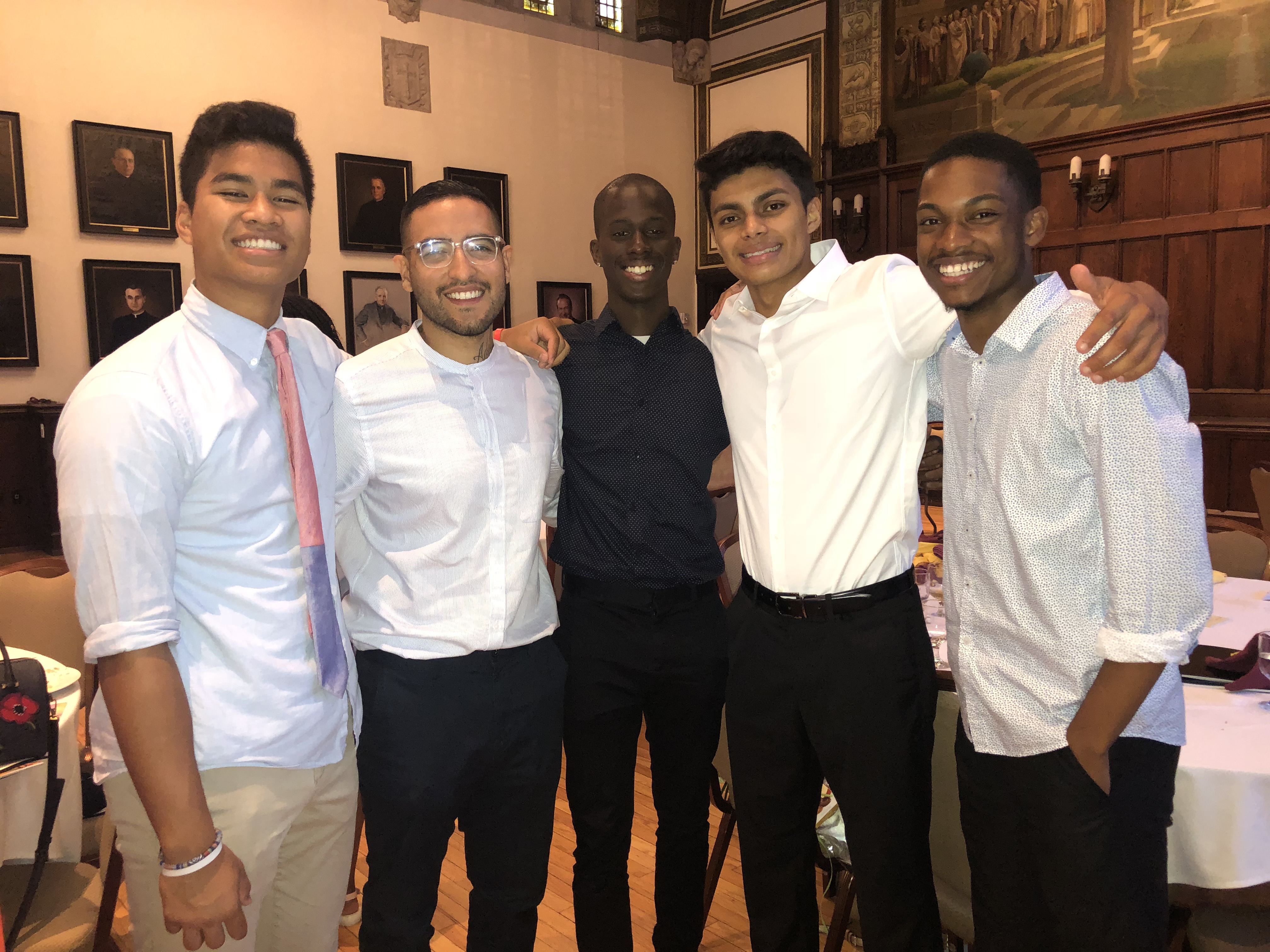
After this incident, my transition to college was really difficult. Growing up in South Central, I never had white or wealthy friends. At Boston College, a predominantly white institution, this made up the majority of the student body, making it difficult for me to connect with my peers. Moreover, as a first-generation Mexican, overhearing people discuss the very real idea of building a border wall made me uncomfortable. And sitting by as classmates casually talked about their parents having multiple homes, inadvertently flaunting their wealth, added to my difficult transition.
It wasn’t until I was accepted into the Undergraduate Leadership Academy (ULA) with 30 other students did Boston College begin to feel more like home. I knew I was going to be one of a few students of color in ULA but I was okay with that. In fact, I was determined to not let myself feel like an outsider on campus – and I am glad I did. Through ULA, I created long-lasting friendships with people I never knew I could, people who look different than me and people who live very different lives than I do.
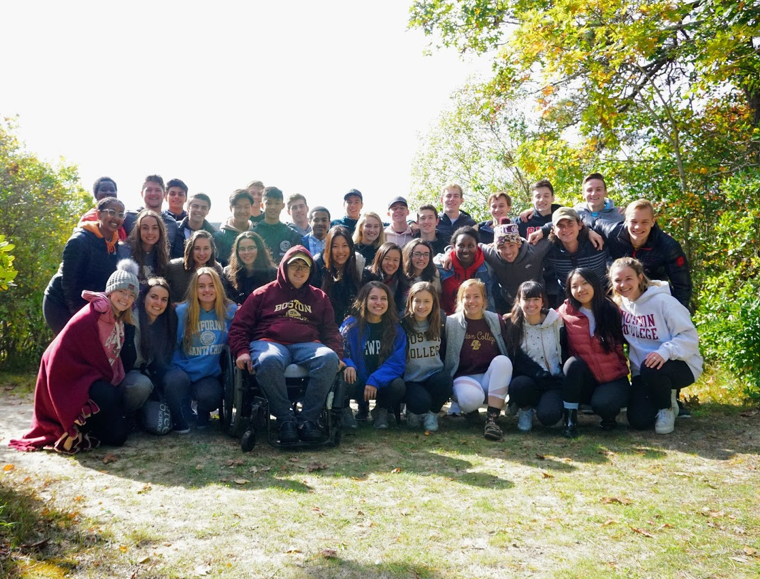
As I look back at my freshman year at Boston College, I admit that I was seriously considering transferring, but I knew I would have to learn to be comfortable in these uncomfortable spaces even if it meant having more people run away from me. Luckily, I finally feel at home, and I am looking forward to taking on my second year with a double major in English and Applied Psychology and Human Development. What’s more, I’m proud to say that I’m going to be a ULA student leader next year. I will have the opportunity to mentor incoming freshmen, some of whom I am sure will be students of color like myself and create another family of students.
Redefining what it means to be a champion.
